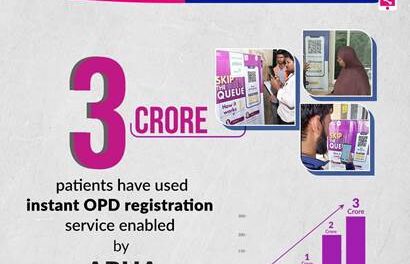As short videos and reels on social media platforms become an integral part of daily life, a new study highlights a concerning link between bedtime screen time and high blood pressure (hypertension) among young and middle-aged individuals.
Researchers from The First Hospital of Hebei Medical University in China conducted the study to investigate the correlation between screen time spent watching short videos at bedtime and the prevalence of essential hypertension. Their findings, based on data from 4,318 participants who self-reported their screen time and underwent medical examinations between January 2023 and September 2023, reveal that longer bedtime screen time is significantly associated with higher rates of hypertension.
“The screen time spent watching short videos at bedtime was significantly associated with essential hypertension in young and middle-aged people,” the research team stated in their paper, published in the journal BMC Public Health.
The researchers called for strict control of screen time spent watching short videos at bedtime, urging individuals to adopt healthier habits to reduce hypertension risk. Additionally, they recommended controlling body weight, blood lipids, blood glucose, and uric acid levels, alongside lifestyle improvements such as reducing high-sodium diets.
Mobile Phone Use and Hypertension
The findings align with previous studies linking prolonged mobile phone use to elevated hypertension risk. Research published in the European Heart Journal – Digital Health by the European Society of Cardiology (ESC) demonstrated that even 30 minutes or more of mobile phone use weekly can increase the likelihood of developing high blood pressure. The study suggested that low levels of radiofrequency energy emitted from mobile phones may contribute to this effect.
A Global Health Crisis
According to the World Health Organization, 1.3 billion adults aged 30 to 79 worldwide suffer from high blood pressure. It is a leading risk factor for heart attack, stroke, and premature death. The rising prevalence of hypertension, especially among younger populations, underscores the importance of addressing behavioral and lifestyle factors that contribute to this global health challenge.
As the popularity of short videos continues to rise, experts warn that moderation and mindful use of technology are essential for safeguarding cardiovascular health. This latest research reinforces the need for public awareness campaigns and preventive strategies to combat the growing burden of hypertension.












